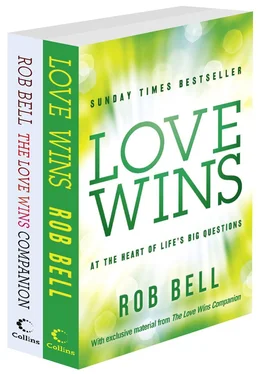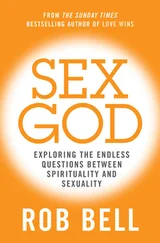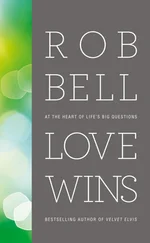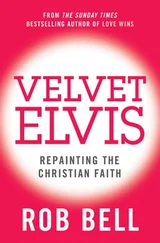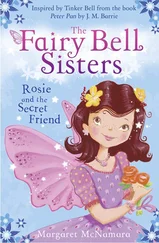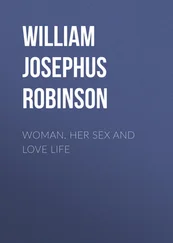The prophet Isaiah said that in that new day
“the nations will stream to” Jerusalem,
and God will
“settle disputes for many peoples”;
people will “beat their swords into plowshares
and their spears into pruning hooks” (chap. 2).
As we would say,
peace on earth.
Isaiah said that everybody will walk
“in the light of the LORD”
and
“they will neither harm nor destroy”
in that day.
The earth, Isaiah said, will be
“filled with the knowledge of the LORD
as the waters cover the sea” (chap. 11).
He described
“a feast of rich food for all peoples”
because God will
“destroy the shroud that enfolds all peoples,
the sheet that covers all nations,
he will swallow up death forever.”
God “will wipe away the tears from all faces”;
and “remove his people’s disgrace from all the earth” (chap. 25).
The prophet Ezekiel said that people will be given
grain and fruit and crops and new hearts and new spirits (chap. 36).
The prophet Amos promised that everything will be
repaired and restored and rebuilt and
“new wine will drip from the mountains” (chap. 9).
Life in the age to come.
If this sounds like heaven on earth,
that’s because it is.
Literally.
A couple of observations about the prophets’ promises regarding life in the age to come.
First, they spoke about “all the nations.” That’s everybody. That’s all those different skin colors, languages, dialects, and accents; all those kinds of food and music; all those customs, habits, patterns, clothing, traditions, and ways of celebrating—
multiethnic,
multisensory,
multieverything.
That’s an extraordinarily complex, interconnected, and diverse reality, a reality in which individual identities aren’t lost or repressed, but embraced and celebrated. An expansive unity that goes beyond and yet fully embraces staggering levels of diversity.
A racist would be miserable in the world to come.
Second, one of the most striking aspects of the pictures the prophets used to describe this reality is how earthy it is. Wine and crops and grain and people and feasts and buildings and homes. It’s here they were talking about, this world, the one we know—but rescued, transformed, and renewed.
When Isaiah predicted that spears would become pruning hooks, that’s a reference to cultivating. Pruning and trimming and growing and paying close attention to the plants and whether they’re getting enough water and if their roots are deep enough. Soil under the fingernails, grapes being trampled under bare feet, fingers sticky from handling fresh fruit.
It’s that green stripe you get around the sole of your shoes when you mow the lawn.
Life in the age to come.
Earthy.
Third, much of their vision of life in the age to come was not new. Deep in their bones was the Genesis story of Adam and Eve, who were turned loose in a garden to name the animals and care for the earth and enjoy it.
To name is to order, to participate, to partner with God in taking the world somewhere.
“Here it is,
a big, beautiful, fascinating world,”
God says.
“Do something with it!”
For there to be new wine, someone has to crush the grapes.
For the city to be rebuilt, someone has to chop down the trees to make the beams to construct the houses.
For there to be no more war, someone has to take the sword and get it hot enough in the fire to hammer into the shape of a plow.
This participation is important, because Jesus and the prophets lived with an awareness that God has been looking for partners since the beginning, people who will take seriously their divine responsibility to care for the earth and each other in loving, sustainable ways. They centered their hopes in the God who simply does not give up on creation and the people who inhabit it. The God who is the source of all life, who works from within creation to make something new. The God who can do what humans cannot. The God who gives new spirits and new hearts and new futures.
Central to their vision of human flourishing in God’s renewed world, then, was the prophets’ announcement that a number of things that can survive in this world will not be able to survive in the world to come.
Like war.
Rape.
Greed.
Injustice.
Violence.
Pride.
Division.
Exploitation.
Disgrace.
Their description of life in the age to come is both thrilling and unnerving at the same time. For the earth to be free of anything destructive or damaging, certain things have to be banished. Decisions have to be made. Judgments have to be rendered. And so they spoke of a cleansing, purging, decisive day when God would make those judgments. They called this day the “day of the LORD.”
The day when God says “ENOUGH!” to anything that threatens the peace (shalom is the Hebrew word), harmony, and health that God intends for the world.
God says no to injustice.
God says, “Never again” to the oppressors who prey on the weak and vulnerable.
God declares a ban on weapons.
It’s important to remember this the next time we hear people say they can’t believe in a “God of judgment.”
Yes, they can.
Often, we can think of little else.
Every oil spill,
every report of another woman sexually assaulted,
every news report that another political leader has silenced the opposition through torture, imprisonment, and execution,
every time we see someone stepped on by an institution or corporation more interested in profit than people,
every time we stumble upon one more instance of the human heart gone wrong,
we shake our fist and cry out,
“Will somebody please do something about this?”
We crave judgment,
we long for it,
we thirst for it.
Bring it,
unleash it,
as the prophet Amos says,
“Let justice roll on like a river” (chap. 5).
Same with the word “anger.” When we hear people saying they can’t believe in a God who gets angry—yes, they can. How should God react to a child being forced into prostitution? How should God feel about a country starving while warlords hoard the food supply? What kind of God wouldn’t get angry at a financial scheme that robs thousands of people of their life savings?
And that is the promise of the prophets in the age to come:
God acts.
Decisively.
On behalf of everybody
who’s ever been stepped on by the machine,
exploited,
abused,
forgotten,
or mistreated.
God puts an end to it.
God says, “Enough.”
Of course, to celebrate this, anticipate this, and find ourselves thrilled by this promise of the world made right brings with it the haunting thought that we each know what lurks in our own heart—
our role in corrupting this world,
the litany of ways in which our own sins have contributed to the heartbreak we’re surrounded by,
all those times we hardened our heart and kept right on walking,
ignoring the cry of someone in need.
And so in the midst of prophets’ announcements about God’s judgment we also find promises about mercy and grace.
Isaiah quotes God, saying, “Come, . . . though your sins are like scarlet, they shall be as white as snow” (chap. 1).
Justice and mercy hold hands,
they kiss,
they belong together in the age to come,
an age that is complex, earthy, participatory, and free from all death, destruction, and despair.
When we talk about heaven, then, or eternal life, or the afterlife—any of that—it’s important that we begin with the categories and claims that people were familiar with in Jesus’s first-century Jewish world. They did not talk about a future life somewhere else, because they anticipated a coming day when the world would be restored, renewed, and redeemed and there would be peace on earth.
Читать дальше
